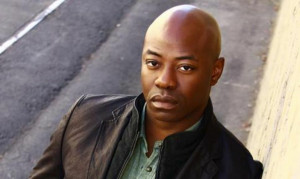That was the message Ginella Massa’s mother relayed to her daughter after she won a speaking competition. Fitting words for a single-mother who arrived in Canada from Panama with limited funds, limited English-language skills, and two young girls. Massa grew up in the culturally-rich communities of Toronto's Scarborough and North York. As a child, Massa loved to talk and had ambitions to get into broadcasting, but at the time, she favoured radio.
Massa is Muslim, and even at nine-years-old, she knew that some people would have reservations towards her because she wore a headscarf. She’d never seen anyone wearing a hijab anchoring network news. However, her mom insisted that she pursue a career in television despite the potential challenges. Some twenty-odd years later and Massa is now the host of a primetime TV news show called Canada Tonight with Ginella Massaon Canada’s public broadcaster, the CBC News Network; hijab and all.
The award-winning Afro-Latina journalist made Canadian history on her January 11th debut, becoming the first national television news host to wear a hijab on-air. She also made international headlines in 2016 at CityNews, and the year prior, it’s believed that she became the first television news reporter in North America to wear a hijab on-air while she worked at CTV News Kitchener. It’s an inspiring story and people have taken notice. One girl even dressed up as Massa for Halloween last year.
“It's so exciting to be the role model that I didn't have when I was that girl,” gushes Massa.
Diversity and representation are important proponents of Massa’s approach to journalism, as is optimism, having conversations with Canadians, and informing her audience about issues they might not know about. Massa brings all of these philosophies to Canada Tonight and she hopes she and the show can be a force for positive change. The show makes a point to focus on people at the heart of stories instead of the usual pundits and politicians. Massa and I spoke last week about her career and Canada Tonight.
What was your reaction when the CBC approached you about anchoring your own prime time show?
Well, I applied for the job just like anyone else. It wasn't handed to me as some people might think. I went through a pretty rigorous selection process with other contenders and made it onto the shortlist. I had to pitch the entire concept for the show which was one of the things they were looking for from their hosts; someone who was going to have a hand in developing and building a show around their style. I think I went through four different interviews that were all virtual, so it was really nerve-wracking. It was stressful and I had to keep it secret. I couldn't tell anyone even after they told me that I'd gotten the job. Not being able to share that was probably the hardest part, but it was also exciting! When I got the call and they offered me the job I was holding back tears. It was really emotional for me because getting on-air as a reporter, period, for so long felt like this pipe dream. So even just landing that felt like such a huge success. I don't think I ever imagined that I could go this far.
Can you take me through the process of coming up with a pitch for the show and sitting down with the CBC team to work out details like the show title and editorial focus?
I'm not used to having my opinion matter so much [laughs]. I'm someone who has always been vocal in the newsroom with lots of ideas, I'm always pitching stories and things. What’s exciting about this role is finally having a chance to see some of those come to fruition and to actually have a lot of editorial say. It's tough, especially during a pandemic, to try and bring a new team together in a company I'm not familiar with through virtual meetings where we're trying to bond and build rapport as a team. They're trying to get to know me too and it's all through a little computer screen, so we have our work cut out for us. Starting with a blank slate is almost harder when you don't have constraints and the world is your oyster. There are so many directions you can take and it's more difficult to decide which way to go. The network wanted a conversationalist with personality and optimism, which are all things I could relate to. It was a perfect fit for me because that’s how I approach news. Even naming the show was a long conversation [laughs]. There was some talk about calling it “Ginella Massa Tonight” or “Ginella Massa Live.” I was actually opposed to that because it wouldn't really mean anything to our audience outside of Ontario who didn't know who I am, it wouldn't tell them anything about the show, and I didn't want the show to be about me. I wanted it to be about Canadians and the issues that matter most to them. The name is the first thing that’s going to tell them anything about what this show is. I'll admit I didn't love “Canada Tonight” when it was first presented to me, but I was won over by the idea we could start the show by saying, 'Here's what we're talking about in Canada Tonight', and I thought, that works. I presented my mom with some of the potential names that we were working on and she also liked Canada Tonight the best and mom is always right.
You’ve said that being the host of a new show on primetime adds a lot of pressure, and the fact that it's on the country's public broadcaster adds another layer of pressure. Can you tell me about that?
Being the first in a position like this sets the tone, right? It's gonna be a make-or-break situation for anyone else behind you in the sense that, if I fail in this role, will women in hijabs not get a chance to do this kind of job? So I always felt the pressure to be excellent. There's also this sentiment I was just hired to tick a diversity box that makes the company look good and I didn't really earn this role. I want anyone who tunes in or watches my work to say, ‘Oh, actually, she's a really great journalist who just happens to wear a scarf on her head.’ I feel like there's no room to be mediocre, which is not a bad thing because that pushes me to be the best that I can be, but I want the work to stand on its own.
You are often cited as Canada's first hijab-wearing news anchor and are noted as a history maker for that. What does that accomplishment mean to you?
I feel proud to have hopefully opened the door to the people behind me, and I think that I have because since I started being on-air in 2015 other women in hijabs have been hired in television news. Fariha Naqvi-Mohammed works at City News in Montreal. Zarqa Nawaz, who's known as the creator of Little Mosque on the Prairie, was a radio host at CBC and became an evening host in Saskatchewan on TV. I think people were able to see what I did and that the sky didn't fall. We can hire women in hijabs and put them on TV and the world isn't going to end.’ [laughs].
Reading articles about you, that is often the first thing people latch on to; the first hijab-wearing news anchor or newscasts. So I’m interested in hearing more about who Ginella Massa is.
Yeah, it's a big part of my story, but it's not the only part of my story. I have so many other identities that influence my journalism and my view of the world. I was born in Panama to Spanish-speaking parents which a lot of people are surprised to hear. I came to Canada when I was one with my mom. She was a single mom, with two little girls, $100 in her pocket, and not a lot of English. That's how I grew up here in Toronto. So I have these different identities: I have my Hispanic identity, my Muslim identity — and a lot of people might think that those two things are at odds with each other — and I also have my Canadian identity, which is big. I came here when I was one and grew up in Toronto so I feel very Canadian. In some ways, the fact that I'm at the crossroads of all of these different identities is a very Canadian experience.
As an Afro-Latina, a woman, and someone who wears a hijab, I'm sure you've experienced a lot of undue scrutiny and criticism. Whether you’re being bombarded with it on social media or you’re just kind of aware of it, how do you deal with that?
It's not easy, to be honest. Especially when it comes directly to your inbox. It's hard to ignore. My husband will say, ‘Can you just not read that stuff?’, but it’s like opening your emails and just not reading your emails, so it’s hard. I do take some solace in seeing that 99% of the comments are about my appearance and not about my journalism. I take it as a marker of success that no one has any criticisms about my work or my journalism. I'm happy to take constructive feedback if you have a problem with how I'm doing my job but if they've just looked at my photo and have a problem with what I'm wearing, that's really their problem, not mine. I think this is something that women on TV in general deal with in a way that their male counterparts don't. I think there's an obsession with women's appearance and the policing of women's appearance on TV. Ask any of your female colleagues and they'll tell you. They'll get criticized if they're too covered or they're not covered enough. If they're wearing too much makeup or they're not wearing enough makeup. They're either smiling too much or not smiling enough. It's like you can't win if you are a woman on television because someone will always have something to say about your appearance [laughs]. I had someone send me a tweet because my nail polish was chipped like, 'If you’re going to be on TV at least get a manicure.’
That is so petty and nitpicky. Does he do this with every woman in his life?
Right? And what does it have to do with the story I’m doing? Are you that easily distracted?
You've said that sometimes during the commercial break, you’ll go through tweets and read people’s comments. It’s almost like they’re live-tweeting the show.
Yes! I have this one viewer who will literally direct message me during the show with just comments. They’re not good or bad, just his thoughts on the topic. And it's so interesting to have that direct line to our viewers.
You’ve also mentioned that you like having conversations with people when they’re being respectful. Why is that important to you?
I think it's really easy to shy away from social media because of all the negativity. It would be really easy for someone like me, and probably understandable for someone like me, to just say I'm just not going to have a Twitter or an Instagram. But I think you have to take the good with the bad, and for us, if we want to call ourselves Canada Tonight, and be connected with Canadians by understanding what issues matter to them and how our segments resonate with them, then we have to be available to them. I like engaging with people on social media respectfully even if they disagree with what we've done. I have engaged with people who have sent me constructive criticism or feedback and we can have a productive conversation. I think sometimes people forget that a newscast is only an hour and a story might only be two or three minutes, and they can feel like we're missing part of the story. We're able to have a conversation to say we were aware of something but didn't get to it and here's some more information on this topic, or here's a link where you can read more about this thing. Sometimes we can continue that conversation on social media which I really like.
What do you think the audience gains from hearing stories or hearing conversations that are underreported or hearing from people that they don't often hear from in the media?
I'll put it in a different context. I think even when we talk about Canadian news, national news, a lot of times parts of the country get missed. We are based in Toronto, most of our staff is based in Toronto, and as a result, those are the stories that we are tuned into. It's a lot easier for us to access those stories. What I really like about Canada Tonight is that some of our writers are in Vancouver, and one of our producers is in Yellowknife. We've gotten amazing story pitches on things that are not on our radar but are impacting Canadians. I think that's really important to be able to talk about some of the stories that are very different from your reality. These are your fellow Canadian residents. These are the issues that are affecting them.
Being a window into the rest of the country and having a chance to do not just the headline stories, but other stories that don't always make it to the top of the news is something we really wanted to do. This is why I've always been an advocate of diversity in the newsroom, period. That also means diversity of geography, at least for us on our show, and that has proven successful.
You've described your role on Canada Tonight as a dream job. You've been hosting the show for about a month now so what would you say are some of the best parts of being the host of Canada Tonight?
So far, the best part is the reaction that I've gotten from viewers who just tuned in to support because they saw the headline, 'hijab-wearing anchor', but then stayed because the content was engaging or interesting. Someone said to me, ‘I usually don't watch the news because it makes me feel really anxious but I don't feel anxious when I watch your show.’ That was a huge compliment to me. We know how important news is, especially in this time when we're trying to navigate this crazy, strange world that we're living in. There's so much information coming at you, and for us to be able to kind of pick out some of the important pieces, help you understand these issues, and present it in an optimistic way that is solution-oriented so you don't just feel a sense of dread, is exactly what we're trying to do.
I originally wanted to get into music journalism. I realized the reason I was more attracted to that kind of journalism is exactly what you're talking about; the dread and the anxiety. My grandparents loved the news and they watched it religiously when I was growing up, but every time they'd watch it, they’d leave with some warning about something on the news and I didn't want to be conscious of all these things all the time.
When I was younger and I thought about getting into broadcast TV, I saw myself doing something lighter, like lifestyle or maybe CBC kids. I didn't really like politics but my first internship was in a newsroom, and I fell in love with the news because I realized at the end of the day it was just storytelling. I loved the idea of talking to people and hearing their stories. Everyone has a story if you know the right questions to ask, so that's what I fell in love with...but I completely hear you on that point.
When you were nine and you had the speech competition you told your mom that you'd rather get into radio and couldn't envision someone who looked like you on TV. If you had the chance to have a conversation with a young hijab-wearing person, what would you want to tell them?
My mom was the one who encouraged me to go into broadcast TV, so I would tell them what my mom told me. Just because it hasn't been done before doesn't mean that you can't be the first. That's to any young person who has a big dream that might seem crazy or might be impossible to other people. Don't close the door or limit yourself. I didn't know if I was going to succeed, but I had to know that I'd at least tried my best because I've never been a quitter.
With everything that's happened around the Black Lives Matter resurgence, here in Canada, we've had to have more serious conversations about racism and how it takes shape here. In your experience, what have you noticed about the Canadian brand of racism?
I get asked a lot about whether I've experienced racism trying to enter this industry, and the answer is no because no hiring manager ever said to my face, they wouldn't hire me because I wear a hijab. That's because it's illegal in this country under our discrimination laws. So the form of racism that I often dealt with was the polite racism that Canadians are very good at, which comes in the form of microaggressions, negative assumptions, or backhanded compliments. People would compliment me on being so articulate, even though my job is literally communication. I'd walk into a room and people would assume I was an intern when I was actually a producer. I had a colleague tell me when I was working as a producer that they'd never put a woman in a hijab on-air because it was too distracting. I've dealt with people just not expecting me to be in certain positions or making flippant comments that aren't inherently racist or malicious, but kind of tell you what they're thinking. I've certainly been in many rooms where I'm the only person who looks like me. When I walked into my first internship, in the largest local newsroom in the country, in the most diverse city in the world, it didn't look at all like the Toronto I grew up in. I could count the number of people of colour on my hands. And the only woman in a hijab who I ever met in a building of 3000 people was the lady who worked in the cafeteria. I was shocked at the level of ignorance from people who are meant to be educated and cultured. The kinds of questions that they would have for me about Islam, this 22-year-old intern who was super green, and they would come to me as a resource. They realized that they were limited in their understanding and they were doing themselves a disservice by not having more diversity in their newsroom.
Who’s someone that you would love to have as a guest on your show?
You know, people keep asking me this and I don't really have a dream guest because a dream guest for me is a Canadian who is doing something groundbreaking and innovative. A changemaker. We probably don't even know their name yet, but that's the kind of dream interview I would want on our show.
Canada Tonight airs weekdays at 8 pm ET on CBC News Network and is also available on CBC Gem.

 By
By 


